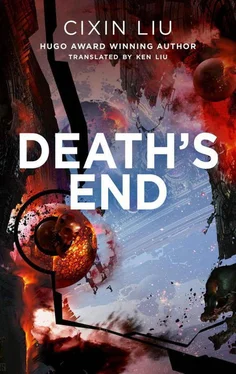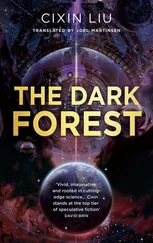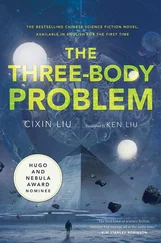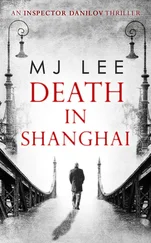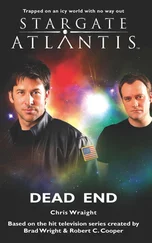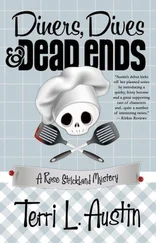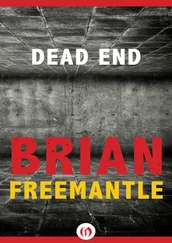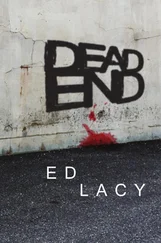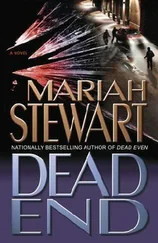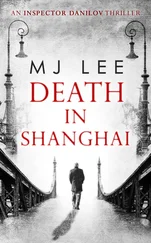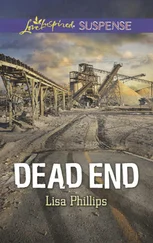A figure in green, slender and supple, leapt out of the transport and gracefully landed on the food pile about a dozen meters below. The crowd stopped. They saw that the figure standing atop it was Sophon. She was still dressed in camouflage, and the black scarf around her neck flapped in the hot wind, highlighting her pale face.
“Form a line!” Sophon shouted.
The lens zoomed in again. Sophon’s beautiful eyes glared at the crowd. Her voice was very loud and could be heard over the rumbling of the transport engines. But the crowd below only paused briefly before resuming their agitated motion. Those closest to the pile began to cut through the netting to get at the food bags inside. The crowd became more frenzied, and a few daring ones began to climb up the pile, ignoring Sophon.
“You useless things! Why aren’t you out here keeping order?” Sophon lifted her face and shouted at the transport. In the open door of the transport stood a few shocked officials from the UN Resettlement Commission. “Where are your armies? Your police? What about the weapons we allowed you to bring here? Where is your responsibility ?”
The chair of the Resettlement Commission stood at the door of the transport. He held on to the doorframe with one hand for support, and waved his other hand at Sophon, shaking his head helplessly.
Sophon unsheathed her katana. Moving faster than the eye could see, she swung it three times and sliced three of the men climbing up the pile into six pieces. The three killing strokes were exactly the same: beginning at the left shoulder and ending at the right hip. The six pieces fell, and the viscera spilled out midair to land with a shower of blood among the rest of the people. Amidst screams of terror, she leapt from the pile and landed with her sword swinging, quickly killing more than a dozen individuals around her. The refugees shied away from her as though a drop of detergent had been deposited into the oil film over a dirty bowl, quickly clearing out a space around her. The bodies left behind in that empty space were also split from the left shoulder to the right hip, a method that guaranteed the maximum spilling of organs and blood.
Faced with so much gore and blood, many fainted. As Sophon walked forward, people hurried to back away. An invisible force field seemed to surround her, repelling the mob and keeping the space around her clear. She stopped after a few steps and the crowd froze.
“Form a line,” Sophon said. Her voice was soft.
The chaotic mob quickly organized itself into a long, winding line, as though the people were enacting an array-sorting algorithm. The line extended to the gigantic tent and wound around it.
Sophon jumped back onto the pile and pointed at the line with her bloody katana. “The era for humanity’s degenerate freedom is over. If you want to survive here, you must relearn collectivism and retrieve the dignity of your race!”
—————
Cheng Xin couldn’t sleep that night. Noiselessly, she stepped out of her room.
The hour was late, and she could see a flickering light on the steps of the porch: Fraisse was smoking. On his knees lay a didgeridoo, an Aboriginal instrument made from a thick, hollowed-out branch about a meter long. Every night, he played it for a while. The sound made by the didgeridoo was a deep, rich, rumbling whine, not like music, but more akin to the snores of the ground itself. Every night, AA and Cheng Xin fell asleep listening to it.
Cheng Xin sat down next to Fraisse. She liked being with the old man. His transcendence in the face of a miserable reality soothed the pain of her broken heart. He never watched TV and seemed to pay no attention to the events of the outside world. At night, he rarely returned to his room, but fell asleep leaning against the doorframe, waking up when the rising sun warmed his body. He did so even on stormy nights, saying that it was more comfortable than sleeping in a bed. Once, he said that if the government bastards ever came to take away his house, he would not move to the resettlement zones; instead, he would go into the woods and build himself a shelter out of woven grass. AA said that with his advanced age, such a plan was not realistic, but he countered that if his ancestors could live that way, then so could he. As early as the fourth ice age, his ancestors had crossed the Pacific from Asia in canoes. That had been forty thousand years ago, when Greece and Egypt didn’t even exist as ideas. Back in the twenty-first century, he had been a wealthy doctor, with his own clinic in Melbourne. After emerging from hibernation in the Deterrence Era, he had also lived the comfortable life of a modern man. But when the Great Resettlement began, something in his body seemed to awaken. He felt himself becoming a creature of the earth and the forest and realized that very few things were truly necessary for life. Sleeping in the open was fine—very comfortable, in fact.
Fraisse said he didn’t know what kind of portent this was.
Cheng Xin gazed at the resettlement zone in the distance. This late at night, the lights were sparse, and the endless rows of shelter-houses gave off a rarely-seen tranquility. A strange feeling seized her, as though she were seeing another age of immigration, the Australia of five centuries ago. The people sleeping in those houses were rough cowboys and ranchers, and she could even smell the fragrance of hay and the odor of horse excrement. Cheng Xin told Fraisse of the odd sensation.
“It wasn’t so crowded back then,” said Fraisse. “They say that if a white man wanted to buy land from another white man, he needed only to pay the price of a box of whiskey, and then he would ride out with the sunrise and return at sunset. The area he circumnavigated would belong to him.”
Cheng Xin’s past impressions of Australia had come from that old film of the same name. In the film, the hero and heroine crossed the spectacular landscape of north Australia on a cattle drive. However, the film wasn’t set during Australia’s age of immigration, but during the Second World War—still the recent past when she was a young woman, but now ancient history. She felt a pang of sorrow as she realized that Hugh Jackman and Nicole Kidman had both been dead for probably over two centuries. Then she thought about how Wade had resembled the movie’s hero as he labored in the shelter-house.
Thinking of Wade, she repeated to Fraisse what the man had told her. She had been meaning to tell him, but had worried about disturbing his transcendent state of mind.
“I know the man,” Fraisse said. “Child, I can tell you that you should listen to him. But leaving Australia is impossible. Don’t worry about it. It’s useless to ponder what cannot be done.”
It was true. Leaving Australia now would be very difficult. Not only did the droplets keep watch, but Sophon had recruited her own naval force of humans. Any aircraft or surface ship leaving Australia that was found to harbor resettled individuals would be attacked immediately. In addition, as Sophon’s deadline approached, few wanted to attempt to return to their home countries. Though conditions in Australia were harsh, staying here was better than going back to certain death. A few cases of small-scale smuggling happened here and there, but Cheng Xin was a public figure, and such a path was closed to her.
Cheng Xin did not concern herself with these details. No matter what happened, she wasn’t going to leave.
Fraisse seemed to want to change the topic, but Cheng Xin’s silence in the darkness demanded more from him. “I’m an orthopedist. You probably know that when a bone is broken, it heals stronger because a knot forms around the fracture. The body, when given an opportunity to make up for an absence, may do so excessively, and recover to the point where it has more of that quality than those who had never suffered such inadequacy.” He pointed up at the sky. “Compared to humans, the Trisolarans once lacked something. Do you think they also overcompensated? To what extent? No one knows.”
Читать дальше
